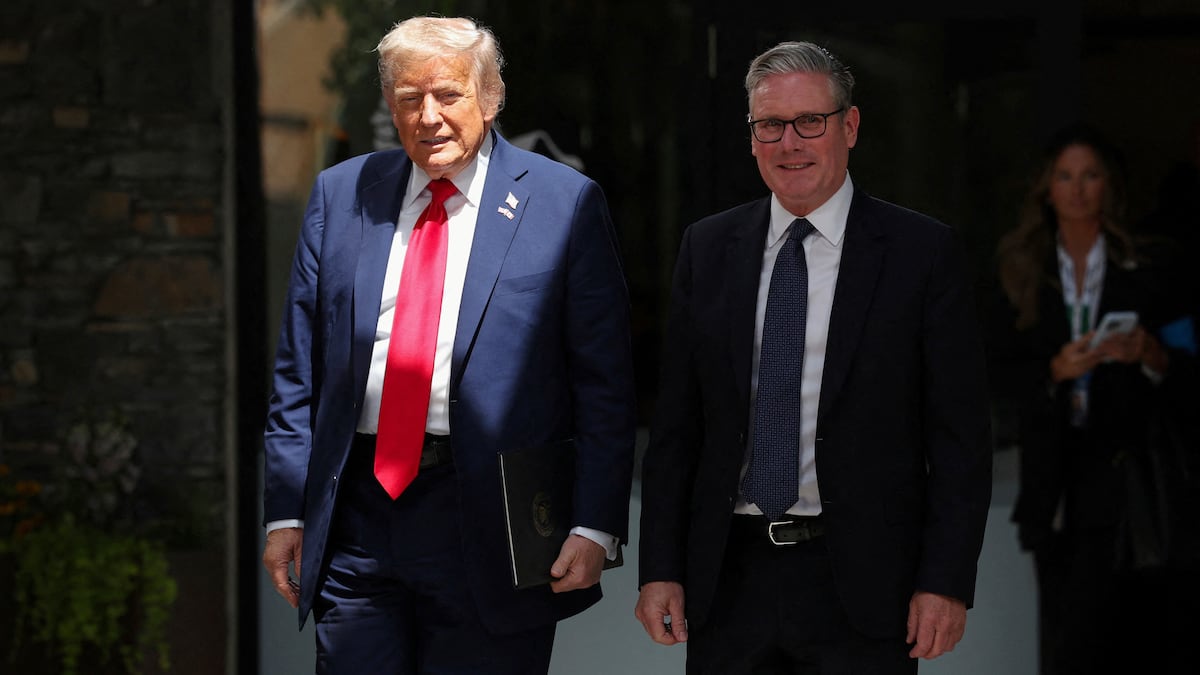Trump Leaves G7 Summit Early Amid Middle East Tensions
President Trump departed the G7 summit in Canada early to address escalating conflicts in the Middle East, prioritizing trade discussions and international relations.

‘Not in the Mood to Negotiate’: Trump Heads to the Situation Room

Trump leaves G7 summit early with hints of more conflict in the Middle East: ‘Everyone should immediately evacuate Tehran!’

Trump leaves the G-7 summit abruptly

Trump leaves G7 summit early warning Tehran to evacuate
Overview
President Trump left the G7 summit early to focus on escalating tensions in the Middle East, particularly concerning Iran and Israel.
The White House confirmed Trump's early departure was due to urgent matters related to the Middle East situation.
During the summit, Trump finalized a trade deal with UK Prime Minister Keir Starmer, emphasizing trade as a key agenda item.
Trump suggested including Russia and China in future G7 discussions, citing past mistakes in excluding Russia.
The G7 summit, held in Canada, faced challenges with divisions over trade and international conflicts, overshadowing its discussions.
Analysis
Emphasizes Trump's early departure from the G7 summit amid escalating tensions in the Middle East.
FAQ
President Trump cut his G7 trip short due to escalating tensions in the Middle East, specifically concerning the conflict between Israel and Iran.
The conflict involved strikes by Israel against Iranian targets, including the Natanz nuclear facility. The situation was serious enough for Trump to prioritize U.S. involvement in the Middle East over his G7 commitments.
Despite his early departure, Trump finalized a trade deal with UK Prime Minister Keir Starmer during the summit, emphasizing trade as a key agenda item.